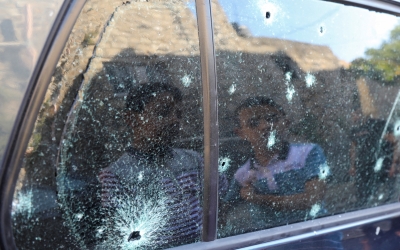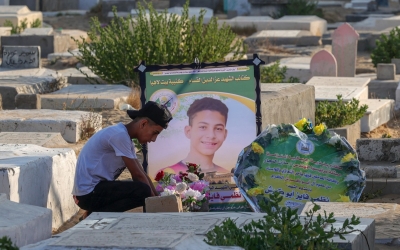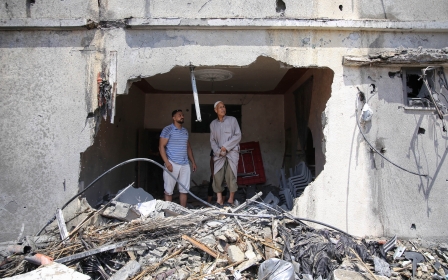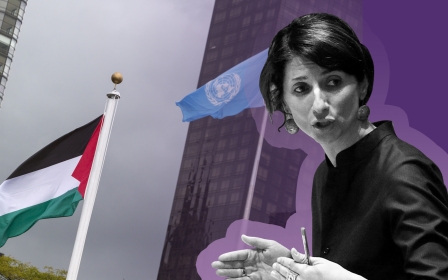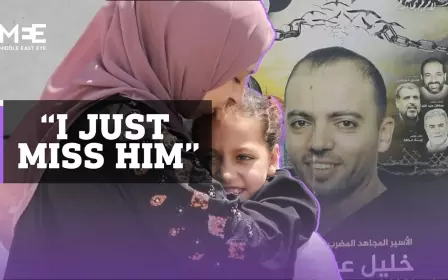Egypt 'furious' with Israel for ignoring request to reduce West Bank tensions
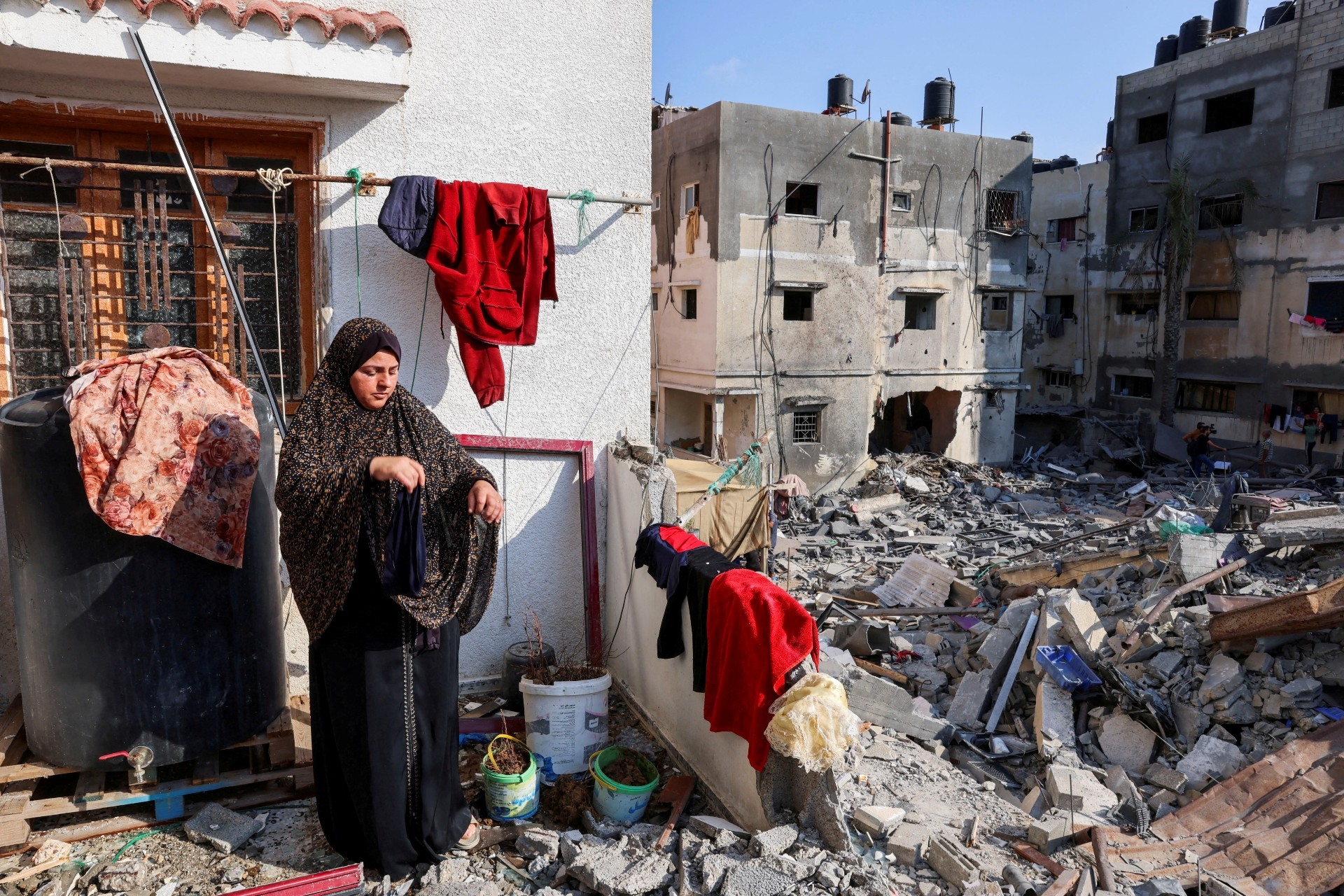
Egypt is angry with Israel for ignoring calls to reduce army raids in the occupied West Bank following the three-day bombing campaign of Gaza earlier this month, according to an Israeli report.
Haaretz daily revealed that Cairo was "furious" after Israeli troops killed high-profile resistance fighter Ibrahim al-Nabulsi on 9 August.
The deadly raid in Nablus came a day after Egyptian President Abdel Fattah el-Sisi requested Israeli Prime Minister Yair Lapid to restrain the army in the West Bank.
In the Monday evening phone call, Sisi asked Lapid to reduce the tensions in the West Bank to avoid further escalation with Palestinians.
Lapid issued a statement after the call thanking Sisi for his "crucial role" in reaching a ceasefire agreement with the Palestinian Islamic Jihad (PIJ) a day earlier.
Israel had launched a three-day assault on the Gaza Strip on 5 August in an operation targeting the PIJ, killing 49 Palestinians, including 17 children, and wounding more than 360. Egypt brokered a ceasefire between the two sides on 8 August.
The Israeli bombardment followed the violent arrest of a PIJ leader in the West Bank, Bassam al-Saadi, a few days earlier.
Egypt was hoping that such incidents in the West Bank would be avoided to prevent hostilities in Gaza. Egyptians expected Sisi's conversation with Lapid to lead to a directive to the Israeli army, which did not happen. The Egyptian request was also not relayed to other senior Israeli officials.
According to the Haaretz report, Cairo viewed the Nabulsi killing as "Israel sticking a finger in the president's eye".
Egyptian intelligence was already frustrated with Israeli officials for not allowing them enough time to reduce tensions with the PIJ ahead of the Gaza bombing.
They were further irritated by Israel's refusal to include in the ceasefire agreement that Cairo would strive for the release of Saadi and another hunger-striking prisoner, Khalil Awawdeh.
Islamic Jihad angry with Egypt
The frustration over the Gaza assault is shared by the PIJ who were angry with Cairo's mixed signals ahead of the first air strikes on 5 August that killed one of the group's senior commanders.
Sources close to the PIJ revealed to Middle East Eye that Egyptian mediators told the group Israel was not looking for an escalation and would respond "positively" to a request to release Saadi and Awawdeh four hours before it began bombing the Gaza Strip.
'There is a lot of anger and tension within Islamic Jihad because of the role of [the] Egyptian mediation'
- senior Palestinian source
"[The PIJ] believe they have been betrayed by the Egyptians and that they were part of the game - to make them feel relaxed and secure just before the air strikes took place," a senior Palestinian source close to the PIJ told MEE.
"There is a lot of anger and tension within Islamic Jihad because of the role of [the] Egyptian mediation because they consider the Egyptians gave them misleading information and hints just before the air strikes. As a result of this information, the Islamic Jihad relaxed and was unprepared for the air strikes."
Sources close to the PIJ told MEE that Egyptian mediator Brigadier Ahmed Abdul Khaliq incorrectly told Khaled al-Batsh, a senior member of the PIJ's political bureau, that there had been a "breakthrough" in indirect negotiations.
Israeli intelligence agents reportedly passed the following message to the PIJ through Egyptian intelligence: "We want to end this escalation. Give us until Sunday and we are pushing them [Israel's political leaders] to agree."
As the air strikes rained down on Gaza for a second day, Khaled Mansour, a PIJ leader in southern Gaza, was targeted and killed in an Israeli air strike. Mansour had been a delegate at PIJ talks in Cairo.
On the same day, the Israeli military said it had arrested at least 19 members of the PIJ in the West Bank. The targeted air strikes and the string of arrests ruptured relations between the PIJ and Egyptian intelligence, with Ziad al-Nakhalah, the head of the PIJ, refusing to take calls from Egyptian intelligence, sources close to the PIJ told MEE.
The two sides had been previously very close, with the PIJ having mediated between Egyptian intelligence and Hamas.
The anger towards the Egyptians was made evident after the ceasefire when Nakhalah spoke at a press conference in the Iranian capital, Tehran.
Nakhalah praised the support he had received from Iran, Iraq and Qatari Foreign Minister Sheikh Mohammed bin Abdulrahman Al Thani, but notably failed to mention the role Egypt had played. He also thanked the Qatari-owned Al Jazeera media network for its rolling coverage of the assault on Gaza.
Egyptians reportedly protested, telling the PIJ they could not understand why Doha's role had been praised and Cairo's efforts to de-escalate tensions were overlooked.
Fragile ceasefire
Following the ceasefire, the PIJ conveyed through Egyptian intelligence that they would stop rocket attacks following Israel's reported pledge to release Saadi and Awawdah.
However, Israeli officials have denied that such a condition was included in the agreement. Both prisoners remain in Israeli custody.
In an attempt to mend ties with the PIJ following Israel's offensive, Egypt promised to send "a large delegation" to Israel to secure Awawdah's release.
However, Awawdeh's health worsened last week as he passed more than 160 days on hunger strike protesting his administrative detentions without trial or charge.
Earlier this week, an Israeli military court rejected an appeal for his release on health grounds.
After the ceasefire, the PIJ threatened to restart military action if both men were not released soon. "The PIJ is threatening to go back to escalation if there is no progress," the source close to the PIJ told MEE kast week.
Middle East Eye delivers independent and unrivalled coverage and analysis of the Middle East, North Africa and beyond. To learn more about republishing this content and the associated fees, please fill out this form. More about MEE can be found here.


